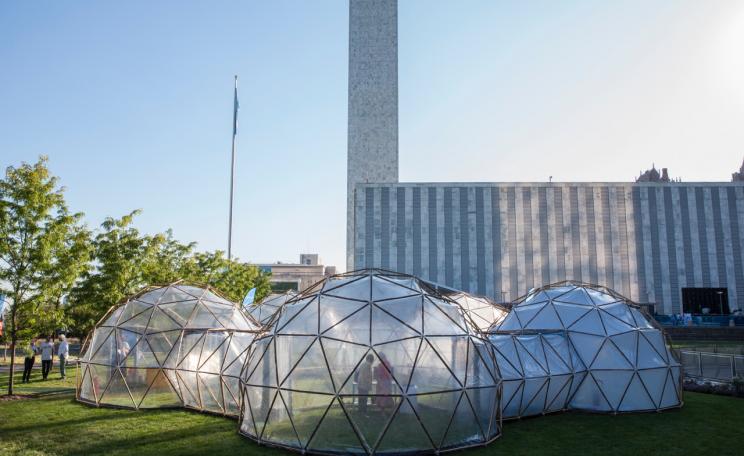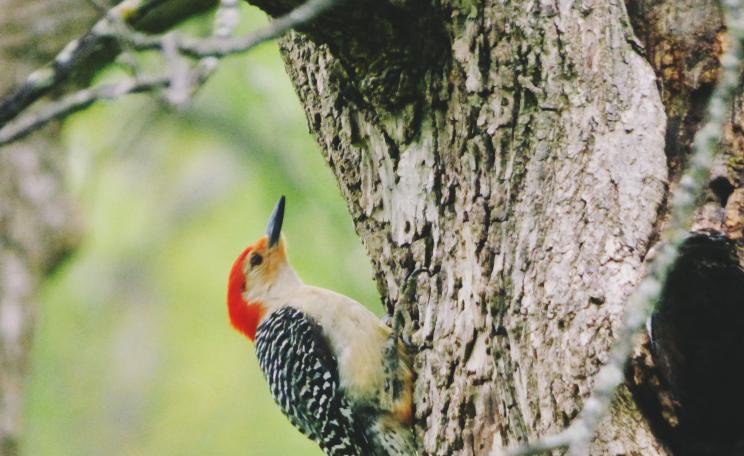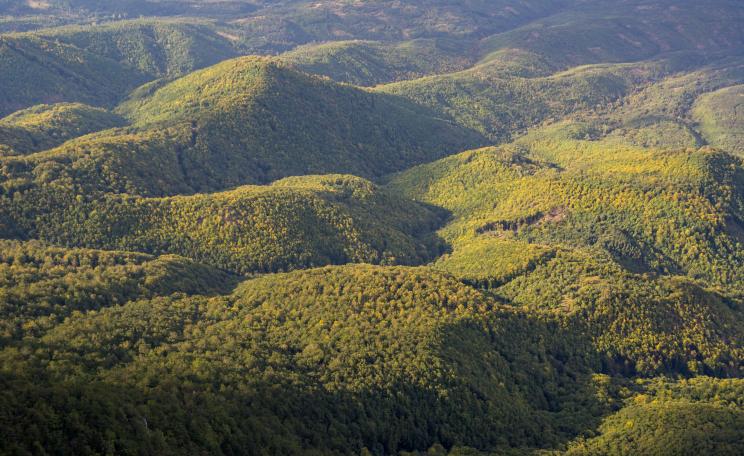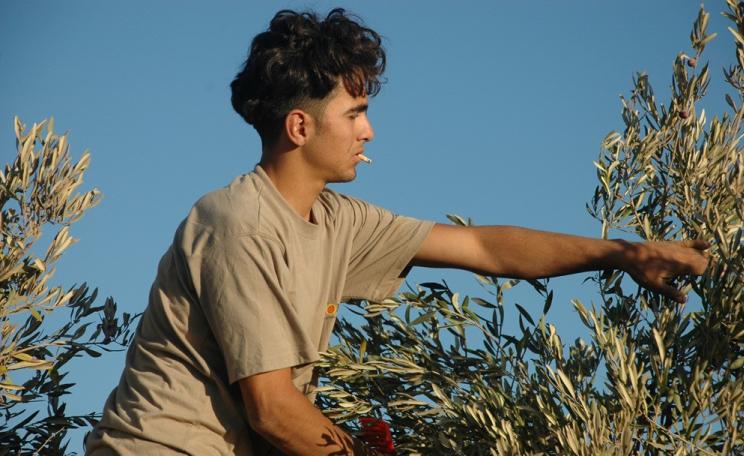Given the urgency of our current timeline and our climate situation, we need positive energy and a sense of togetherness.
On a misty autumn evening, a listed building in the heart of Plymouth City is transformed into a canvas to inspire conversation, thanks to a low-voltage LED light installation.
The tower block, undergoing a process of regeneration, bears the message: "LOVE IS THE HIGHEST ECONOMY OF LIFE," urging us to come together in pursuit of a sustainable future on our finite planet.
This installation was conceived by the artistic collective Still Moving, programmed by Josh Kopeček, and created in collaboration with the celebrated poet Ben Okri, a Nigerian-born British writer. Okri is known best for his Booker-Prize winning novel The Famished Road, alongside collections of poetry, short stories and essays.
This article has been published through the Ecologist Writers' Fund. We ask readers for donations to pay some authors £200 for their work. Please make a donation now. You can learn more about the fund, and make an application, on our website.
Commitment
Léonie Hampton, one of the collective's founders and a Devon-based artist, believes that this installation offers an inclusive space for different cultures and communities.
She tells The Ecologist: "On that evening when we illuminated the lights, it was a magical experience to observe passersby gazing up at it as they strolled by, almost as if they were absorbing the words like a mantra in motion.
"We selected this building not just for its stark emptiness, but also for the deep sense of pride it holds in the hearts of the local community.
“Our commitment to sustainability led us to repurpose scaffolding and discs that had previously played a vital role at the NEW NEW WORLDS display at COP26 in Glasgow with the support of Greenpeace in 2021."
The NO NEW WORLDS installation made its previous appearance at Mount Batten Pier in Plymouth in 2020.
Proud
Its words “call for us to cherish this world”, state the collective, “as the reality of the environmental threats we face become ever clearer, it is critical that we constantly question the myth of infinite growth on a finite planet, with the exploitation and extraction that has brought us to this pivotal ecological moment.”
In the current light installation, Ben Okri's words encapsulates Plymouth's strong social identity, rooted in kindness and community spirit. It expresses what we all require for our survival and the growth of our communities.
Léonie adds: "I hope that this installation lifts spirits. Given the urgency of our current timeline and our climate situation, we need positive energy and a sense of togetherness."
This project was made possible by Plymouth Culture, an organisation supporting cultural initiatives in the city, with funding from Historic England's High Street Heritage Action Zone cultural program.
Rebecca Barrett, South West regional director at Historic England, says, "The light installation, part of the High Street Heritage Action Zone Cultural Program, promises to be inspiring and thought-provoking.
"It's heartening to see the Civic Centre become a canvas for hopeful messages, especially messages of unity. This is essential for Plymouth's regeneration, which we are proud to be part of."
Wake up
In the face of the climate crisis, public art has emerged as a powerful medium for conveying urgent messages and inspiring collective action. These installations serve as visual reminders of our shared responsibility to protect the planet, motivating us to take immediate and meaningful steps in addressing the climate crisis.
Councillor Tom Briars-Delve, cabinet member for environment and climate change, said: “Culture has the power to shock and inspire.
"We hope that spotlighting artworks like this in prominent Plymouth locations will encourage people to further engage with the climate emergency and, more importantly, the opportunities we all have to reduce our impact on the planet.”
The creation of this installation brought together artists from various backgrounds and disciplines. While Léonie has a fine arts background, her partner, Martin Hampton, is an architect and filmmaker.
Laura Hopes, the other member of Still Moving, is a lecturer and researcher in Fine Art at Plymouth University. Their shared goal is to reach as many people as possible and engage the public space to create meaningful connections.
Overwhelm
Léonie reflects: "In our current emergency, we need to transition from the private sphere to the public sphere, and it's a risky endeavour, especially when public funding is involved. Our aim is to use the same techniques as advertisers, but instead of selling something, we aim to create something meaningful that connects people."
This installation can be seen in Plymouth city center until Sunday, 12 November 2023 and its creators hope to take it to other cities in the future.
Léonie said: "I'm more interested in constructive energy. We need to rekindle our appreciation for the world's beautiful magic that's still very much alive. As the incredible words say, we just need to wake up before it's gone."
Abigail Reynolds, who works in Plymouth, said: "I was in Plymouth on Friday and saw Still Movings fabulous new work on the civic centre. It’s such a monumental thing in every way!
"I found it so interesting that my eyes could follow and read for a long-time and then suddenly I’d lose it and just see 'stars' moving then I could pick up again. I just thought that was so good - that it kept escaping me, as thoughts about climate change also overwhelm."
This Author
Yasmin Dahnoun is a freelance environmental journalist. You can find more of her work at yasmindahnoun.com. This article has been published through the Ecologist Writers' Fund. We ask readers for donations to pay some authors £200 for their work. Please make a donation now. You can learn more about the fund, and make an application, on our website.







